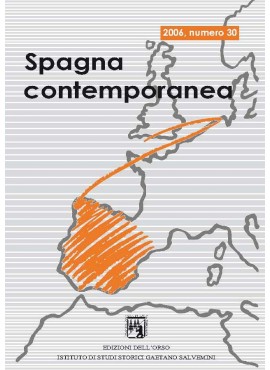Autonomia e Democrazia nella transizione spagnola. La “questione catalana” come fattore di definizione della Spagna democratica
Keywords:
Spain, Catalonia, Autonomy, Democratic transition, Statute of autonomy, Democratic elections, Social movementsAbstract
Autonomy and Democracy in the Spanish transition. The “Catalan question” as a defining factor for democratic Spain
The Transition to democracy, the last episode of the Spanish history in the XX century, bore seminal consequences in the socio-political and institutional arrangement of Spain, in which Catalonia played — and still plays — an essential role. Ever since the major Catalan political forces had appeared unofficially on the public scene, thanks to a cycle of conferences organized in the spring of 1975, until the last big anti-Franco demonstration coinciding with the first big demonstration for democracy (the Diada, on September 11th, 1977), a basic political change had already been taking place, especially in favour of the legalization of most parties, of the elections of June 1977 and of the conversion of the newly-elected Cortes into constitutional Cortes. The study focuses on how, in this process, the political institutionalization of Catalonia as a national entity influenced the Transition as a democratizing factor, as a result to the boost given by a new notion of national identity, integrated by social movements of multiple origins (factory workers, students, civilians, professionals, clerics, personalities from the cultural and socio- economic world, etc.).
Received: 20-12-2005
Downloads
Published
Issue
Section
License
Copyright (c) 2006 Istituto di studi storici Gaetano Salvemini, Torino

This work is licensed under a Creative Commons Attribution-NonCommercial-NoDerivatives 4.0 International License.



